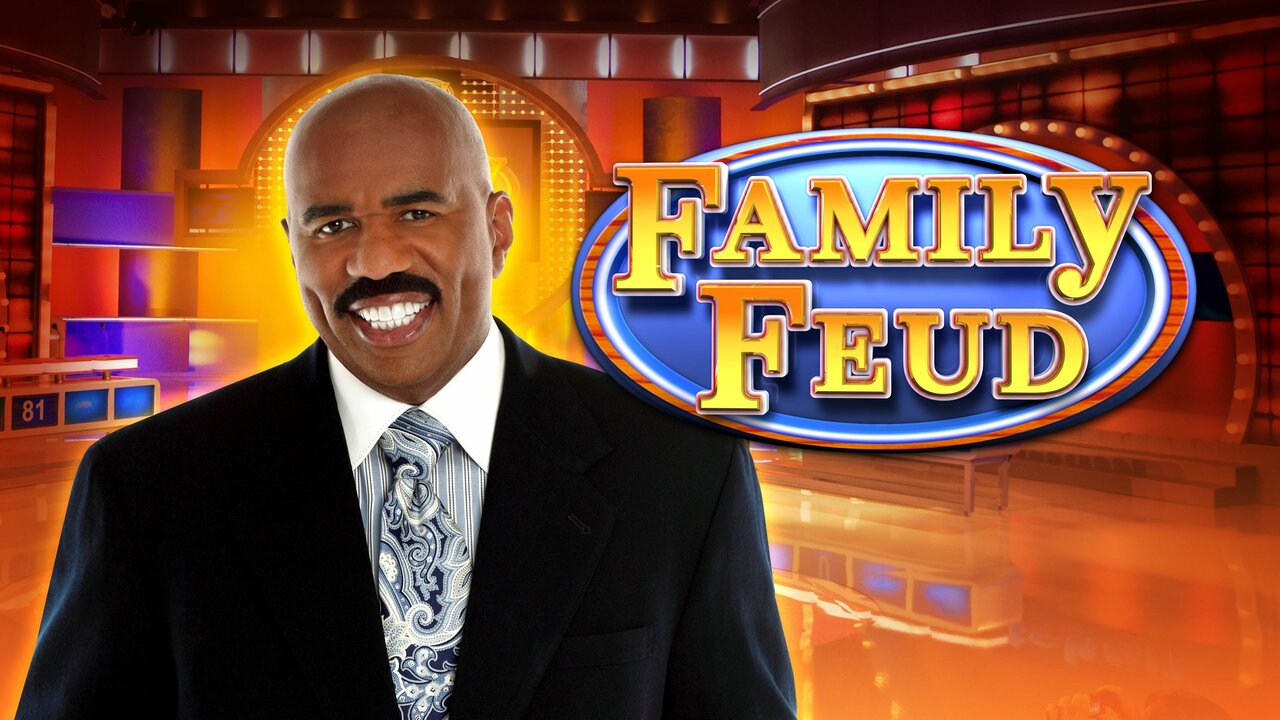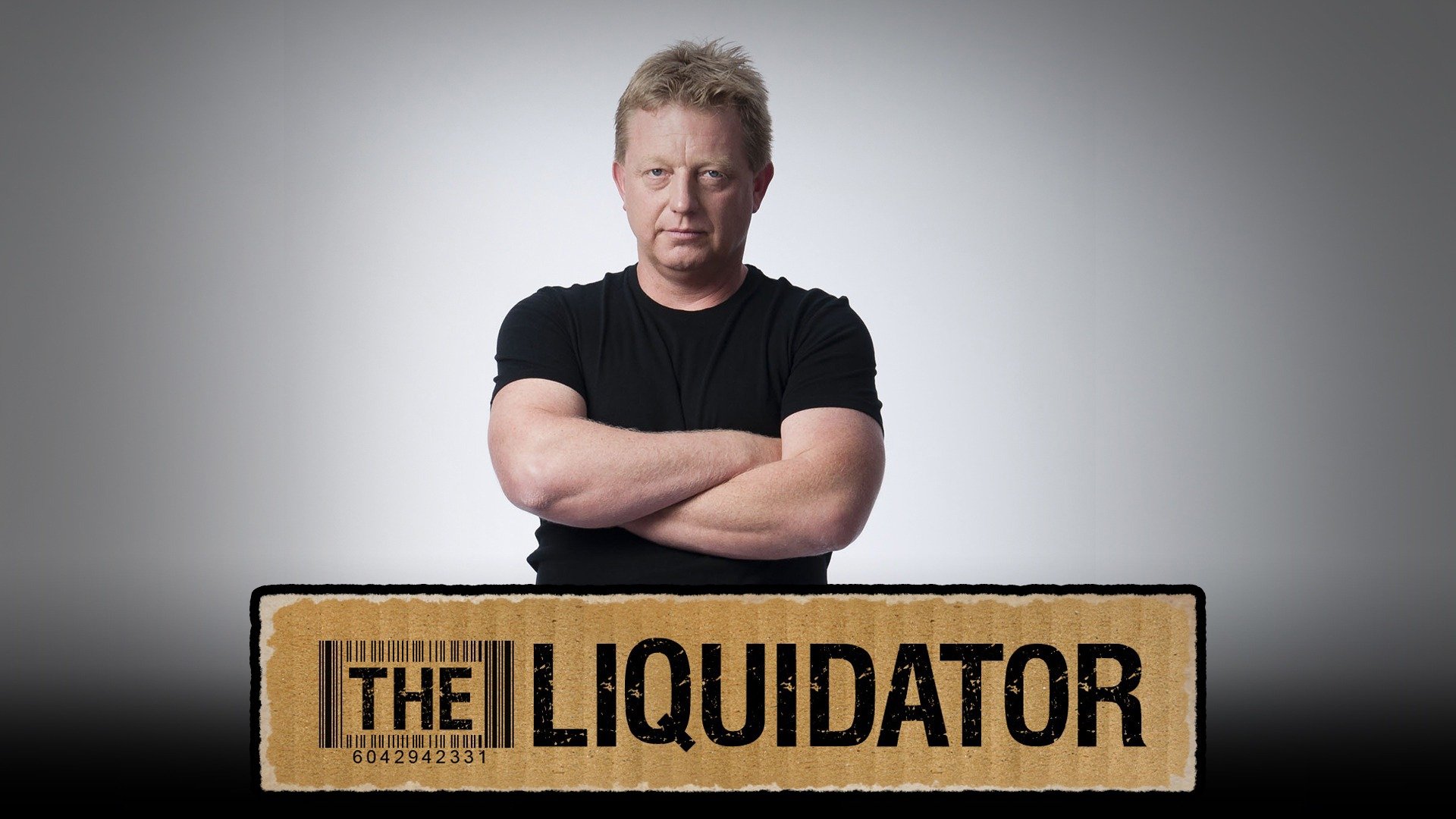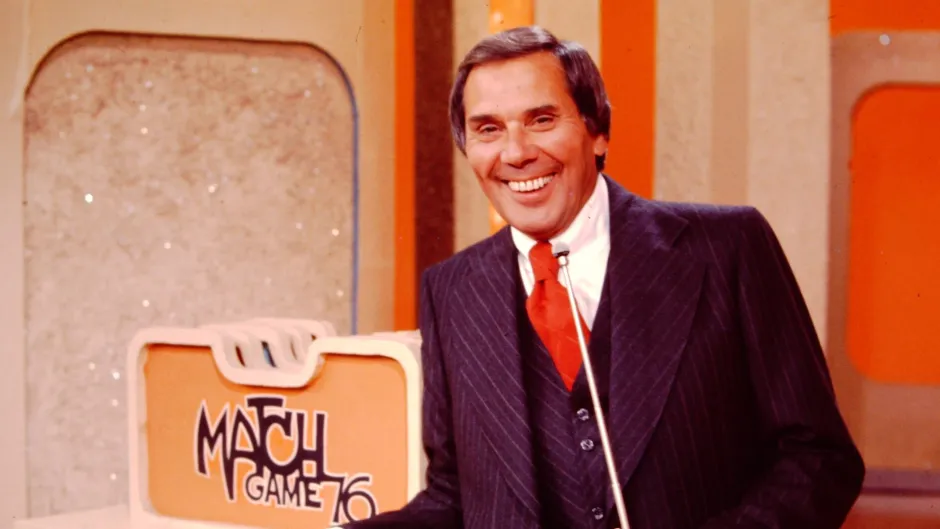Weeknights 10p
Family Feud, an American TV game show conceived by Mark Goodson, pits two families against each other, striving to guess the most popular responses to survey questions for cash and prizes.
With three distinct iterations, the initial run commenced in 1976, spanning both ABC and syndication, hosted by Richard Dawson. Revived in 1988, it aired on CBS and syndication with Ray Combs, later replaced by Dawson until 1995. The series resurfaced in 1999, featuring hosts like Louie Anderson, Richard Karn, John O’Hurley, and currently, Steve Harvey. Studio announcers varied over the years.
Despite an initial surge in popularity, the original version’s ratings waned over time. However, Harvey’s tenure since 2010 revitalized viewership, elevating the show to one of the top syndicated programs in the US. Although Harvey holds the record for hosting, Dawson still leads in total episodes hosted as of 2024.
Family Feud boasts numerous international adaptations and reruns featuring Steve Harvey air on Game Show Network and in syndication, while earlier versions rerun on BUZZR. Beyond TV, the franchise extends to board games, interactive films, and video games.
Gameplay
Family Feud pits two families against each other, with each team typically consisting of five members. The objective is to guess the most popular survey responses. Contestants must be at least 15 years old, with at least one member of the family being 18 or older.
The game begins with a face-off question, where two contestants compete to guess the top answer. The winning family decides whether to play or pass the round.
The playing team attempts to guess all the remaining answers while avoiding strikes. Three strikes give the opposing team a chance to steal the points.
Points are awarded based on the number of people who gave each answer in the survey. Rounds may have increased point values as the game progresses.
Traditionally, the first team to reach 300 points wins, but there have been variations over the years. In some versions, the winner is determined after four rounds, with the final round having tripled point values.
If neither team reaches 300 points, a sudden death round occurs, where the first contestant to guess the top answer wins the game.
Special episodes may have different formats, including multiple games with varying point goals or celebrity teams competing.
Fast Money
At the conclusion of the main game, the winning family picks two members for the bonus round, known as “Fast Money.” One contestant stays on stage with the host, while the other is kept backstage with headphones to prevent hearing the questions. The first contestant is asked five quick survey questions with a time limit to respond.
Once the first contestant finishes or time runs out, they earn points based on matching responses from the survey. The second contestant then faces the same questions, with a slightly longer time limit. If they duplicate an answer, they’re prompted to try again.
If the combined total of both contestants’ points reaches 200 or more, the family wins a cash prize. Otherwise, they receive $5 per point. Prize amounts for Fast Money have varied over the years, with $5,000 being the original prize and later increased to $10,000, then to $20,000, and eventually settling back to $20,000 since July 2010.
Returning champions
During its ABC debut, Family Feud had a cap on winnings set at $25,000 per family. The syndicated version that followed in 1977 introduced new families each episode, a practice called “bicycling” to manage syndication.
The 1988 CBS daytime and syndicated versions allowed returning champions to compete for up to five days. However, during the 1994–95 season, there were no returning champions, and two new families competed in the first half of each episode. The second half featured former champion families from the earlier years of the show.
From 1992 to 1995, some returning champions continued until defeated. From 1999 to 2002, two new families competed in each episode. Returning champions returned with a five-day limit in 2002. In 2009, a new car was introduced as a prize for families winning five games in a row.
Bullseye/Bankroll game
In June 1992, the CBS daytime edition of Family Feud expanded to 60 minutes, becoming the Family Feud Challenge. A new round called “Bullseye” was added to determine each team’s potential Fast Money winnings. This round was later introduced to the syndicated edition in September 1992, which was retitled the New Family Feud.
During Bullseye, two members from each family answered a question aiming for the top answer to add to their bank. The starting bank was $2,500, increasing with each question. In 1994, when Richard Dawson returned as host, the round was renamed the “Bankroll” round. The format changed to three questions with the potential bank increasing accordingly.
The Bullseye round returned for the 2009–2010 season with a $15,000 starting stake for each family and a maximum potential bank of $30,000. However, when Steve Harvey became host, the Bullseye round was removed, and the Fast Money jackpot returned to $20,000.
Hosts and announcers
When Family Feud was first conceived in 1976, Richard Dawson, known from Match Game, secured the hosting role after a standoff with the show’s producers. Dawson’s charming yet cheeky demeanor endeared him to viewers, despite occasional controversy over his habit of kissing female contestants.
After Dawson’s tenure, comedian Ray Combs took over until 1994 when Dawson briefly returned. In 1999, Louie Anderson helmed the show, followed by Richard Karn and then John O’Hurley. Steve Harvey has been the host since 2010, with Joey Fatone initially providing announcements until Rubin Ervin took over in 2015.
Harvey also hosts the primetime reboot, Celebrity Family Feud, which began in 2015. Burton Richardson serves as announcer for both versions.
The show’s production has involved various directors and producers over the years, with different theme tunes and cues. Fremantle currently owns the production rights to the show.
Broadcast history
1976–1985
Mark Goodson conceived Family Feud in 1976, building on the success of Match Game, where Richard Dawson was a popular panelist. The show initially struggled against soap operas but found success after a timeslot change.
Due to scheduling changes, Family Feud aired at various times, eventually settling at 11:30/10:30 a.m. It remained the top daytime game show until Wheel of Fortune surpassed it in 1984. The show also aired primetime specials featuring celebrity casts.
The success of the daytime show led to a syndicated nighttime version in 1977, airing once a week initially and later expanding to five nights a week. However, by the mid-1980s, declining ratings led to its cancellation in 1985.
Viacom considered renewing the show, but Richard Dawson, feeling burnt out after years of filming, expressed reluctance. Viacom ultimately decided not to renew the syndicated version, prompting ABC to also end the daytime show in 1985.
1988–1995
Family Feud shifted to CBS with Ray Combs taking over hosting duties on July 4, 1988, replacing The $25,000 Pyramid. Both the CBS and syndicated versions started off strong in ratings, but changes in daytime TV led to declining viewership.
By 1992, the daytime series faced low ratings and was revamped as Family Feud Challenge, airing for an hour with a new format. However, CBS announced its cancellation in November 1992, with the show ending in March 1993.
The syndicated series continued but struggled with ratings, facing competition from tabloid newsmagazines and losing desirable time slots. Mark Goodson Productions considered bringing back original host Richard Dawson to revive the show.
Despite past tensions with Dawson, the decision was made to rehire him, leading to Combs’ departure. The revamped show returned for a seventh season in 1994 with Dawson as host and format changes, but it failed to sustain ratings.
The seventh season proved to be the syndicated series’ last, with Dawson hosting his final episode on May 26, 1995. The show continued in reruns until September 8 of the same year.
1999–present
Family Feud returned to syndication on September 20, 1999, with comedian Louie Anderson as the new host. Richard Karn took over three years later, reintroducing returning champions to the format. After Karn’s stint, John O’Hurley hosted until 2010 when Steve Harvey took over.
Under Harvey’s tenure, ratings surged by up to 40%, making Family Feud one of the top-rated syndicated programs. Harvey’s ability to connect with viewers and his humor breathed new life into the show.
Since 2014, Family Feud consistently ranked among the top 10 daytime TV programs, even surpassing long-standing favorites like Wheel of Fortune. Its success led to improved clearances and better timeslots.
Production moved from Universal Orlando to Atlanta in 2011, then to Los Angeles in 2017 to accommodate Harvey’s other projects. In November 2019, Harvey began production for South Africa’s version of the show.
The COVID-19 pandemic halted production briefly in 2020, but Family Feud returned with safety protocols in place. In February 2023, the show was renewed for three more seasons, with Season 26 set to be filmed at Tyler Perry Studios in Atlanta.
Family Feud Talent
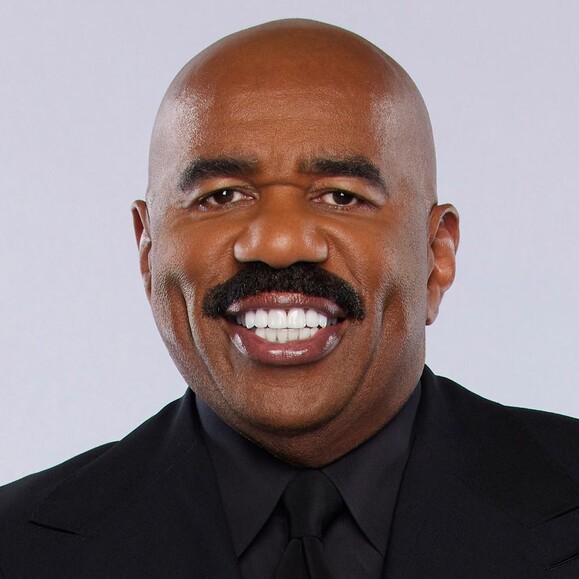
Steve Harvey, Host
Steve Harvey, an Emmy Award-winning TV personality, took over as host of FAMILY FEUD in 2010. He also hosts the “Steve Harvey Morning Show” radio program and the syndicated daytime talk show “The Steve Harvey Show.” Harvey is involved in various other shows like “Little Big Shots,” “Celebrity Family Feud,” and the competition reality program “Funderdome.” With a career spanning nearly 30 years, Harvey is renowned as a stand-up comedian, actor, author, entrepreneur, and humanitarian. He began in comedy, then starred in multiple popular shows and authored New York Times best-selling titles. Harvey has won several accolades, including the Daytime Emmy Award for Outstanding Talk Show Host and Outstanding Game Show Host. He aims to inspire others and emphasizes the importance of faith and hard work.

Richard Karn, Host
Richard Karn, known for his role as Al Borland on “Home Improvement,” also hosted FAMILY FEUD for four seasons. He appeared in various television shows like “That 70’s Show” and “Carol & Company.” Karn hosted an informative DIY program called “You Karn Fix It Yourself” and starred in films such as “Snow Buddies” and “Legend of the Mummy.” He graduated from the University of Washington’s Professional Actors Program and performed on and off-Broadway in productions like “The Foreigner” and “Our Father.” Karn hails from Seattle, Washington.
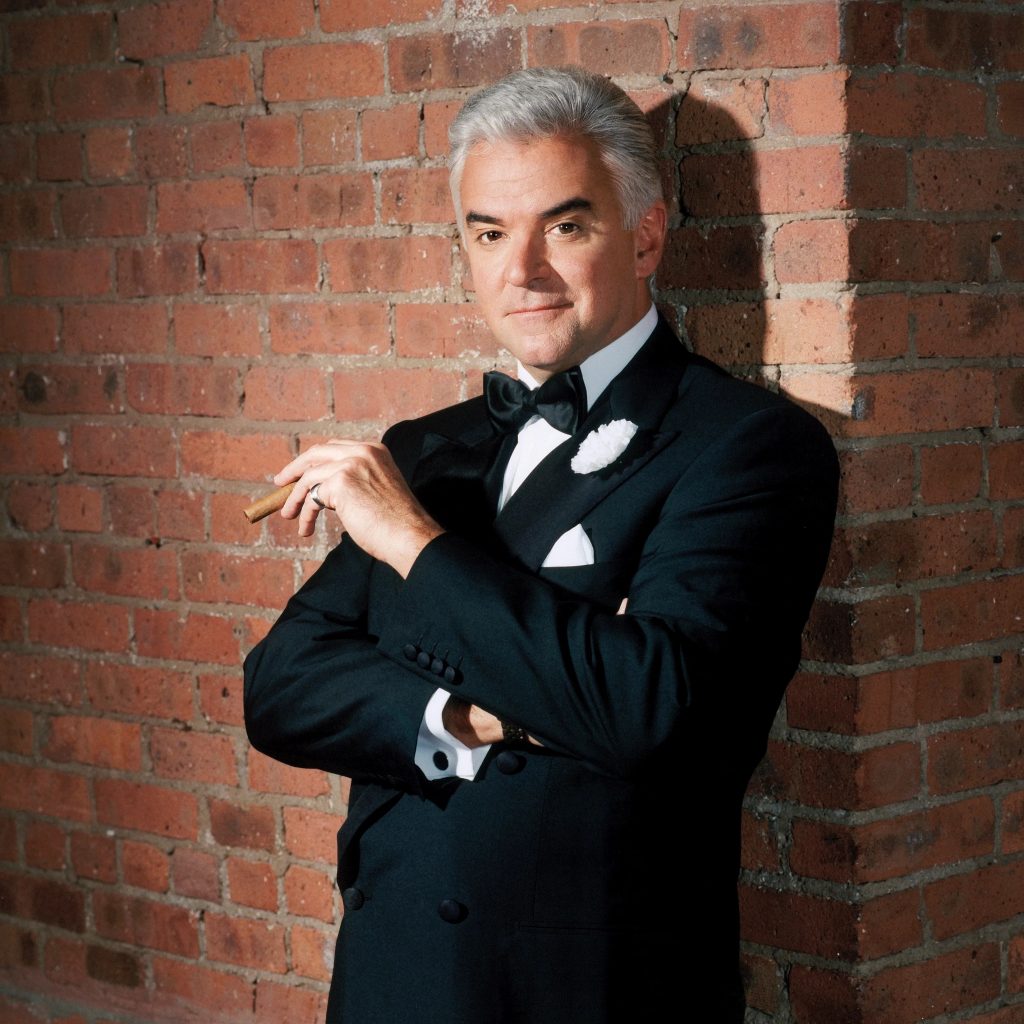
John O’Hurley, Host
John O’Hurley, recognized for his roles on “Seinfeld” and as King Neptune XIV on “SpongeBob SquarePants,” hosted FAMILY FEUD for four seasons. He was a finalist on the first season of “Dancing With The Stars,” finishing second. O’Hurley also performed as King Arthur in “Spamalot” and as Billy Flynn in “Chicago” on Broadway.
